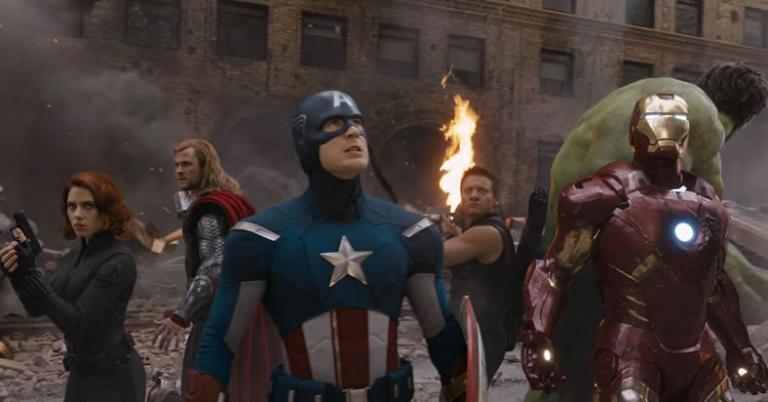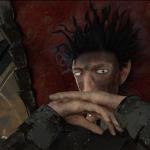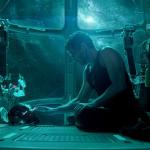
16. Our failures don’t define us … unless we allow them to. This is a huge theme in Endgame, but let’s steer clear of that for a moment and instead turn to (again) Age of Ultron for illustration. As the world is literally falling apart, Scarlet Witch (Wanda Maximoff) is having a panic attack, brought about by the guilt she feels for precipitating the crisis. “It’s all my fault,” she says. Hawkeye isn’t taking that. “It’s your fault it’s everyone’s fault, who cares? Are you up for this? … It doesn’t matter what you did or what you were. You go out there, you fight, and you fight to kill. Stay in here and you’re good—I’ll send your brother to find you. But if you step out that door, you are an Avenger.” When you look at the superheroes we meet in the MCU, few have lived blameless lives. Many have moments of guilt and regret. But they know the only way past whatever bad decisions they’ve made is to look forward and make better decisions this time ‘round. Guilt can paralyze us. Shame can send us spiraling out of control. But we can find redemption. It reminds me of that part of the Lord’s Prayer: Forgive us our debts as we forgive our debtors. Which reminds me …
17. Be quick to forgive. You don’t think about the Avengers as being forgiving sorts. And indeed, sometimes they’re not. The rift between Tony Stark and Steve Rogers in Civil War and the movies that followed was, in many ways, precipitated by an inability to forgive. We see what a toll that friction took on both Tony and Steve and, by extension, the rest of the Avengers. But when characters choose to forgive one another—even under some pretty difficult circumstances—the story turns a little brighter. Gamora’s ability to forgive Nebula (in spite of Nebula’s frequent murder attempts) is perhaps the most obvious example, but the MCU is littered with stories of forgiveness. And unless Loki’s in the mix, it’s almost always the right choice.
18. Don’t be ruled by fear. Obviously, superheroes need to be brave in the face of danger and death. They literally face both every 15 minutes or so in the MCU. But facing our own challenges with courage is important in the real world, too. Take a look at Chris Evans, the guy who plays Captain America. He says that Marvel asked him several times to play the First Avenger. Each time, he refused. “I said no the first few times because I think that I was just scared of it, and the more that I spoke to my friends and family about it, the more that they were saying ‘Chris, you can’t make a decision based on fear. You’ll regret that more than anything else’,” Evans told The New York Times. After the Endgame premiere, he indicated that he’s been thrilled to be a part of the franchise. “It’s been such a huge chunk of my life, which means more to me than I can put into words,” he said. “I have a lot of my family and friends here tonight, but I have a lot of my family and friends up here now, too.” It’s cliché to say that you need to face risk to reap reward: No guts, no glory. And yet, it’s so true. Making decisions based out of fear is a pathway to stagnation, if not out-and-out loss. Even when you’re not facing down Thanos.
19. Loss is a part of life. Throughout the MCU, we’ve seen our characters suffer loss and pain. T’Challa lost his father. Wanda lost her brother. Thor lost his parents. In Infinity War, the losses we see are incalculable. And now, with Endgame serving as a finale (of sorts) to a remarkable 22-movie saga, we fans are losing something, too: The MCU reminds us that, in this life, all things have an expiration date. The only thing we can count on is change itself. This is a particularly hard lesson for me to internalize. When I love something, I hate it to end, even if the ending’s happy. And yet, as Tony Stark says in the Endgame trailer, “Part of the journey is the end.”
20. ‘It’s not all about you.’ This line, from Doctor Strange, competes with “We are Groot” for my favorite line in the whole MCU. It’s as true in Marvel’s universe as it is in our own. When we watch these superheroes do their thing on screen, we forget that they are, in many ways, servants. They serve the world, serve each other and, I think, serve a higher calling—a greater sense of righteousness and good that surpasses human understanding.
21. You’re part of a bigger picture. On The Tonight Show with Jimmy Kimmel, Captain Marvel’s Brie Larson recently talked about filming the post-credits scene where she shows up at Avengers headquarters.
She did the scene in front of a green screen without any other actors. She had to say one thing: “Where’s Fury?” Meaning, of course, Nick Fury. But as they started filming, Brie (with no knowledge of what had happened in Infinity War) realized that she was still missing some information. “’But where is he, actually? Is he in the room?’” she recalled to Kimmel. “’ … Or is it in another universe or whatever?’ And they’re like, ‘he’s very gone.’ And I was like, ‘I think this means like he’s like—he’s, he’s dead.’” She talks, too, about the difficulties of “talking” with people who aren’t actually in the room as well—talking instead to tape marks around the set. Only when she saw the full clip during the premiere of Captain Marvel did she know what was actually happening. Our lives sometimes feel a little like Brie Larson filming that little scene. We act on incomplete information. We have no idea what some things in our lives mean. And yet, if we’re Christian, we know that there’s a reason behind it all—a plan. And perhaps, like Brie, we’ll have a chance to see the full picture one day.
I could go on. The MCU has been a truly epic franchise full of thrills and fun. But lurking underneath its quips and CGI, we find some depth and thought and inspiration. And Endgame has plenty more to talk about.












